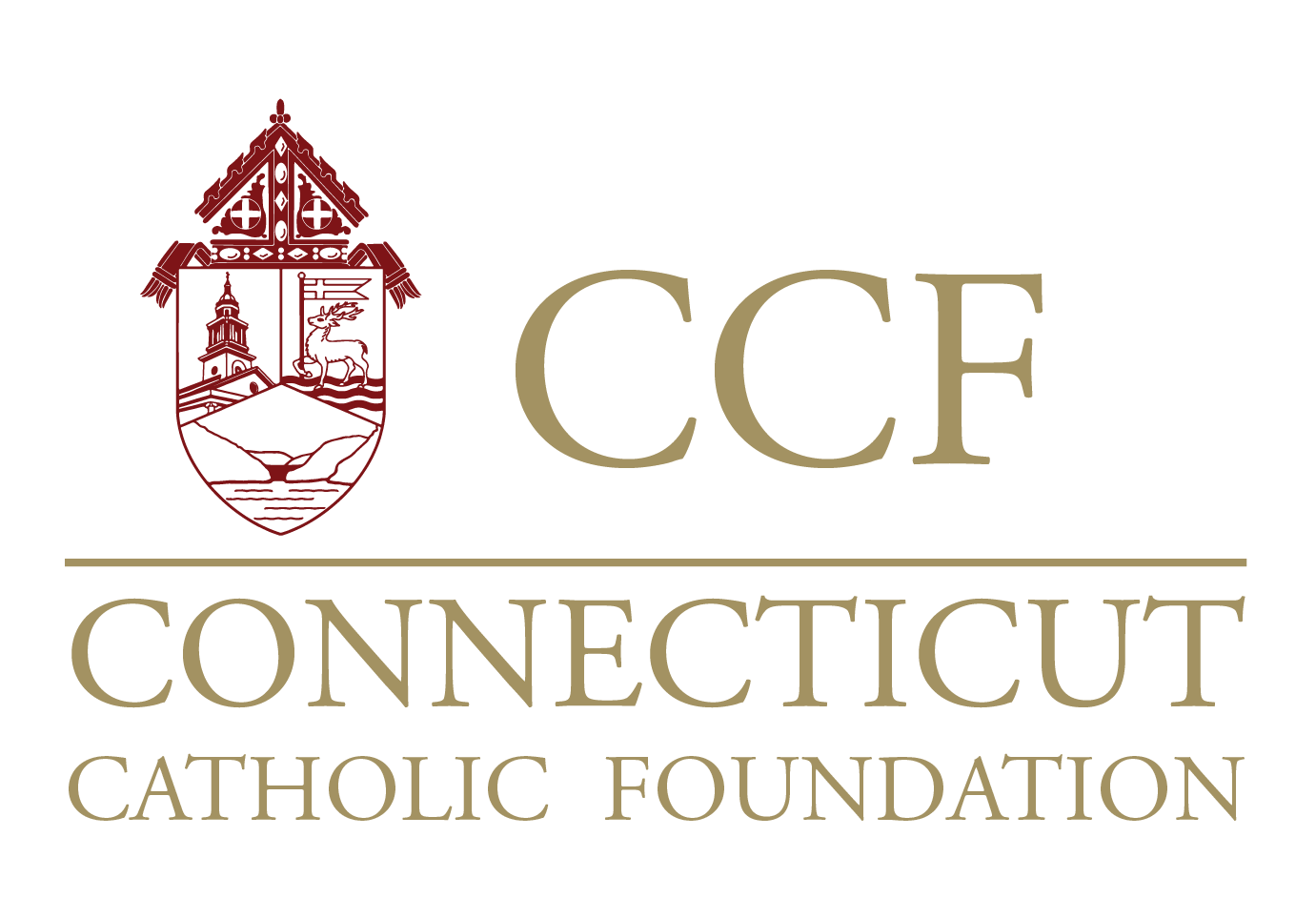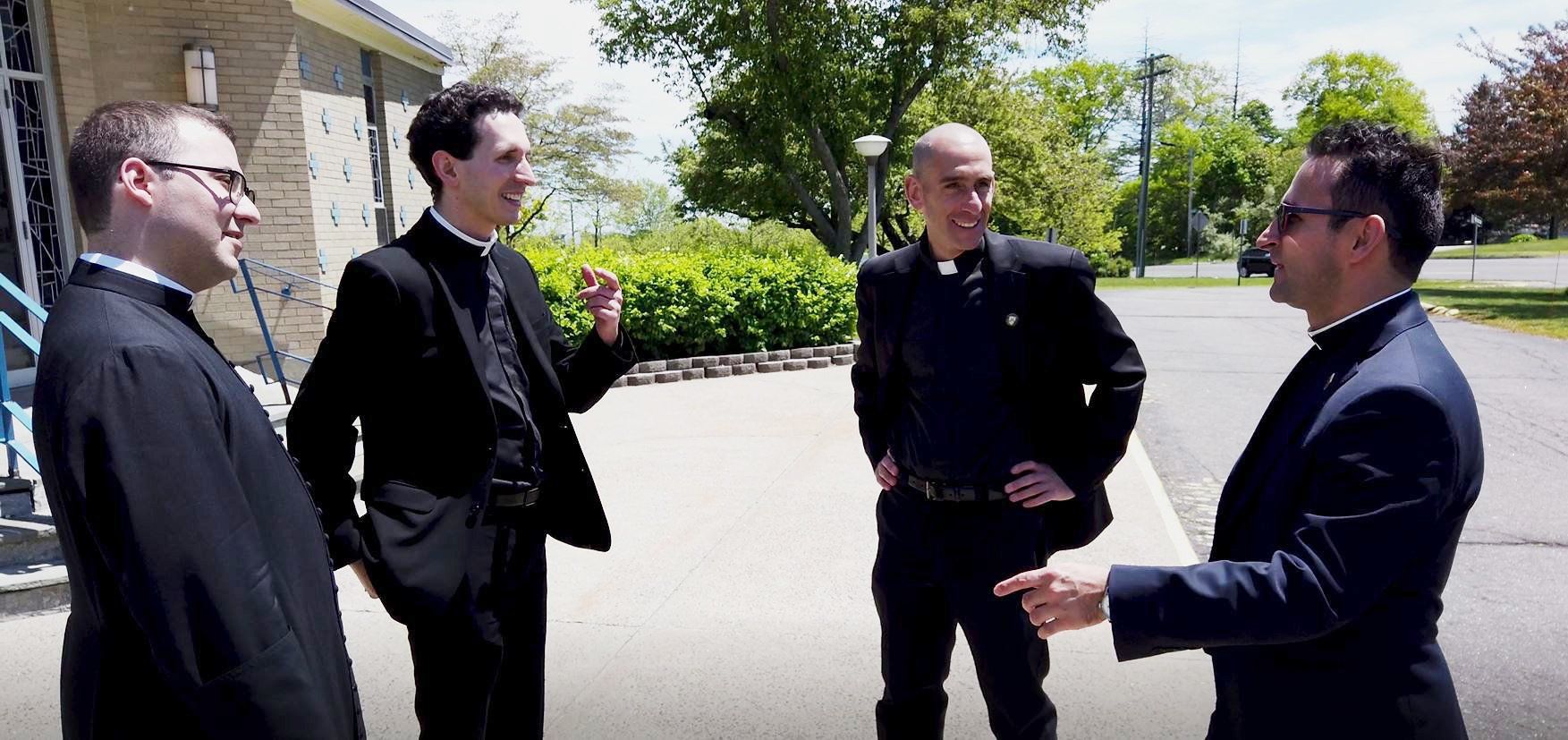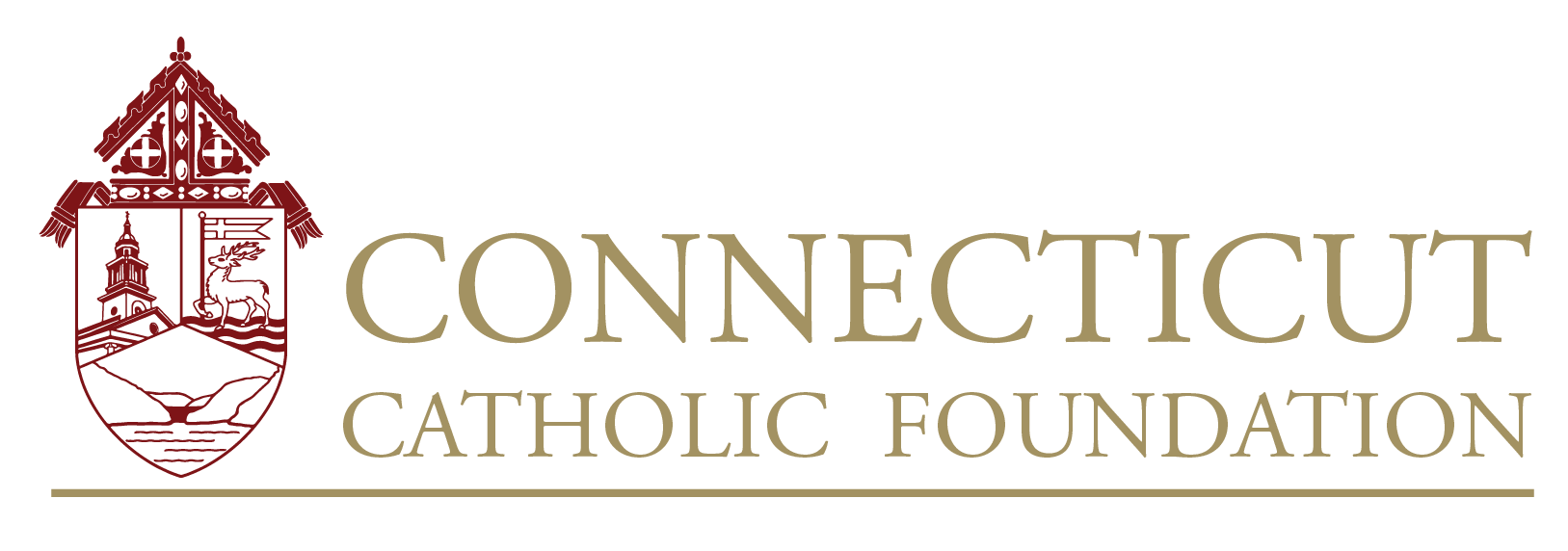FAQs
FAQs
What is the Connecticut Catholic Foundation?
Connecticut Catholic Foundation, Inc. (CCF) is a 501(c)(3) nonprofit Catholic community foundation with a mission to foster generosity and promote impactful, faith-based giving within the Archdiocese of Hartford. CCF provides a unique opportunity for individuals, families, parishes, schools and organizations to financially support the ongoing work of the Church by allowing them to establish professionally-managed funds. CCF serves as a trusted charitable giving resources that helps donors to transform shared values into lasting impact for generations to come.
Who governs the Connecticut Catholic Foundation?
CCF is separate and distinct from the Archdiocese of Hartford and operates independently. It is governed by a Board of Directors, which provides strategic leadership, governance, and stewardship to uphold the foundation’s mission and vision. The CCF Board of Directors ensures financial integrity, guides grant-making decisions, and promotes ethical investment practices aligned with Catholic values.
Are Connecticut Catholic Foundation funds held by the Archdiocese of Hartford?
Foundation funds are held separately from the Archdiocese of Hartford. All investments meet the Catholic ethical standards required by U.S. Conference of Catholic Bishops’ Guidelines.
What fund options are available for donors?
The CCF offers:
Donor-advised fund: For individuals, a simple, flexible account that allows you to make gifts, receive immediate tax benefits, and recommend grants whenever you want. Think of it as a charitable checking account.
Donor-designated funds: For individuals, a streamlined fund that benefits a single beneficiary. You decide how much to grant and when. This is an option if you want to make a qualified charitable distribution (QCD) from your individual retirement account (IRA).
Endowment funds: For individuals and parishes, a permanent fund that is invested and provides annual grants to a parish or favorite charity forever. An endowment fund helps leave a faith-inspired legacy that is sure to last. Possible beneficiaries can include parishes, education/schools, ministries, and organizations.
Field of Interest funds: For individuals, the Field of Interest Fund identifies a specific area need – children, the elderly, health care, education, housing, or the arts, for example – and asks CCF to make the most effective grants possible to meet that need. The initial gift for a Field of Interest Fund is $10,000 and additional gifts may be made at any time and in any amount thereafter.
Memorial funds: For individuals and parishes, a fund established as a charitable living memorial to a family member or friend. This fund may be established with an initial gift of $10,000 and additional gifts may be made at any time and in any amount thereafter.
What are the benefits of partnering with the Connecticut Catholic Foundation?
- Investments meet the Catholic ethical standards required by U.S. Conference of Catholic Bishops’ Guidelines;
- No funds used for legal settlements;
- For parishes, postpones Cathedraticum;
- Competitive-fee structure;
- Provides transactional security;
- Potential for greater rate of return with pooling of funds;
- Ensures donor’s intent is preserved and funds support the specific parish, school, or ministry in perpetuity;
- Removes administrative burden and costs to manage and report on investments; and
- Offers a planned giving and major donor stewardship program to support growth of restricted and unrestricted gifts.
What gifts may be accepted by Connecticut Catholic Foundation?
CCF may accept any gift, grant, and/or bequest for the general purposes of the foundation or for any special charitable purpose designated by the donor and compatible with its mission. CCF may refuse gifts if they are incompatible with the ideals, objectives, programs or principles of the foundation (or otherwise conflict with the CCF gift acceptance policy). Gifts of certain types of assets, such as real estate and business interests, may require additional review prior to acceptance.
How are securities selected?
CCF uses CAPTRUST to manage investments. CAPTRUST is an employee-owned 30 year old company with 1,500 institutional clients and $243 billion in clients’ assets under advisement. CAPTRUST works with many Catholic institutions around the U.S. and has adopted investment objectives as set forth by the United States Conference of Catholic Bishops on socially responsible investing. From a practical perspective, the selection of securities incorporates the utilization of social screens and faith based funds to achieve the foundation’s investment objectives and support Catholic teaching. This includes screening of the criteria across the following areas:
- Abortion and abortifacients
- Adult entertainment
- Contraceptives
- Discrimination
- Environmental
- Fair lending
- Landmines
- Weaponry (including nuclear)
- Stem cells (embryonic)
Is there a minimum amount to get started?
A minimum contribution of $10,000 is currently required to establish a fund at the Connecticut Catholic Foundation. There is no minimum to contribute to an existing fund. A contribution can be in the form of cash, securities or other property that complies with foundation’s gift acceptance policy.
What are the fees?
All fees related to the management of funds are paid from the fund assets held by CCF. For more information, please visit our Donor Services page.
What Planned Giving options does Connecticut Catholic Foundation offer?
Bequest: A gift of cash, securities, or other property made through a will or trust.
Charitable Remainder Trust: An irrevocable trust that allows a donor to donate assets to charity while still receiving income for life or a specific period of time. The remaining assets in the trust are eventually gifted to the donor's chosen charity.
Charitable Lead Trust: An irrevocable trust designed to provide financial support to one or more charities for a period of time, with the remaining assets eventually going to family members or other beneficiaries.
Charitable Life Insurance: Using a life insurance policy to make a charitable gift to a nonprofit or charitable organization. Options can include:
- Naming a charity as a beneficiary
- Donating an existing policy
- Buying a new policy for a charity
- Using life insurance in a charitable remainder trust






